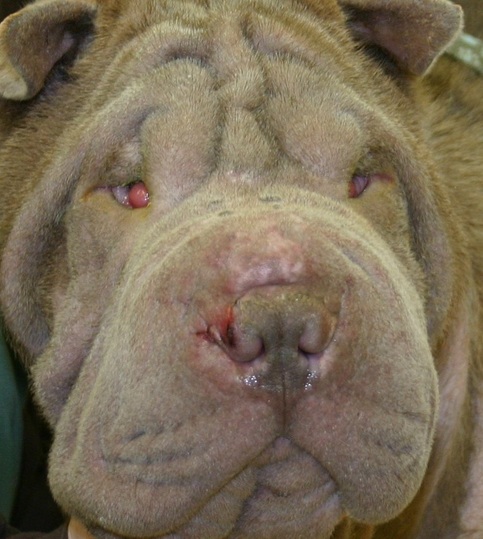Prolapsed Gland of the Nictitans (Cherry Eye)What is it?
A nictitans gland prolapse is an abnormal “flipping out” of the tear gland located behind the third eyelid (nictitans). This tear gland is responsible for about 1/3 of the tears produced in the eye. The exact cause of this condition is unknown. It is believed that there is a weakness of the ligament that holds the gland in place. The gland is therefore free to flip up and out of its normal position. Certain breeds are more prone to Cherry Eye, including the American Cocker Spaniel, English Bulldog, Lhasa Apso, Boxer, and many giant breeds, although many other breeds may be affected as well. Nictitans gland prolapse usually occurs in young dogs, however it can occur in cats and older dogs too. |
Symptoms |
Most pet owners will notice a pink lump in the corner near the nose of the affected eye. Frequently, this lump will disappear and reappear without treatment before it finally remains in the abnormal position. Untreated prolapsed glands may become inflamed, decrease tear production, cause ocular discharge and obstruct vision.
|
Treatment |
Simple gland excision may cause dry eye. For this reason, the recommended treatment is surgical replacement of the gland into its normal position rather than excision.
The majority of dogs do very well during and after surgery. Occasionally a pet may need an additional surgery if the gland prolapses again. Nictitans swelling and ocular discharge is common for 5 to 7 days after surgery. |

